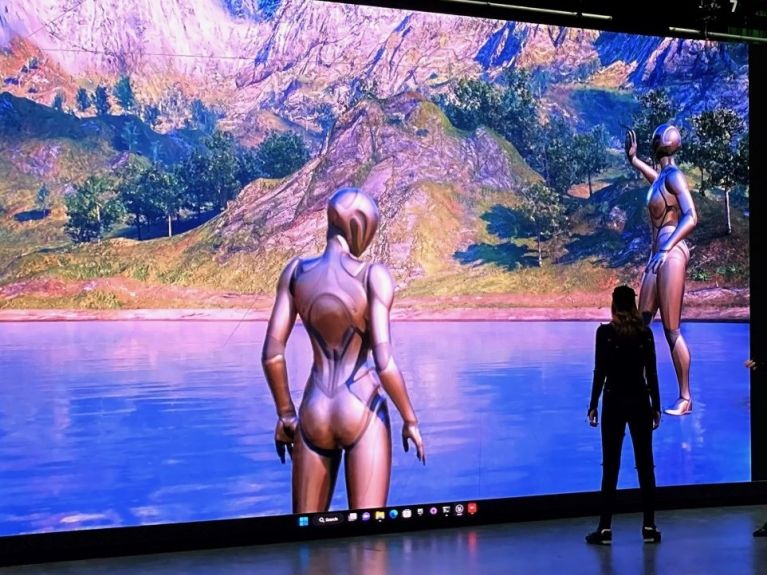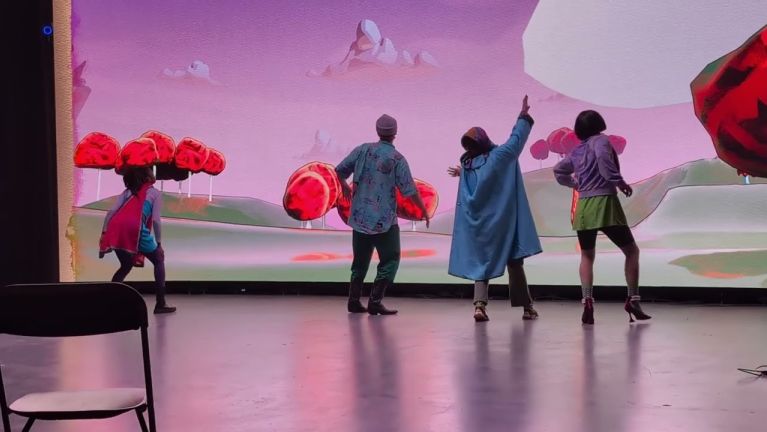“We are expanding the body into the digital sphere”
What will the theatre of the future look like? An interview with Ilja Mirsky, digital dramatic advisor at the Munich Residence Theatre and theatre and digital technology university lecturer.

Mr Mirsky, you are a digital dramatic advisor. How does digital media impact the theatre?
It is changing space. And this change is having an impact on the role of the body. When electricity brought spotlights to the theatre and allowed for punctual lighting, people were worried that this would diminish the role of the actors. However, this was not the case. Technology should always be used to support the body. Digital media is now enabling us to expand the body into the digital sphere.
How does that work?
At the Academy of Performing Arts in Ludwigsburg, I have been working with a large LED wall for a long time, the type that is also used for elaborate film productions. That’s a gigantic screen onto which images are projected to allow for live interaction. This enables actors to appear in a virtual extension of the stage.
Dieses YouTube-Video kann in einem neuen Tab abgespielt werden
YouTube öffnenThird party content
We use YouTube to embed content that may collect data about your activity. Please review the details and accept the service to see this content.
Open consent formWhat is the role of artificial intelligence?
I am particularly excited about the ways in which plays can be made even more accessible, for example through real-time translations that are generated by large language models. I don’t expect artificial intelligence to cause any significant changes at the aesthetic level. I think of the theatre and AI as complementary in a way: artificial intelligence seeks to transfer our physical world into data. Meanwhile, at the theatre we are dealing with data in the form of texts which we are transferring into physical reality. Some information is always lost in this process, and we use our creativity to fill these gaps.
What will the theatre of the future look like?
On the one hand there will be an increasing number of technical possibilities for expanding the stage space. Performing a play at different places around the world simultaneously will, for example, no longer be a problem. You could also start by showing a production on mobile phone screens and then continue on the stage or on another platform. The theatre will be bringing people onto the stage and will be telling stories, also in the future. We need this immediate human interaction. It’s a key element of our society and of democracy.
About: Ilja Mirsky

Ilja Mirsky studied cognitive science and performance studies at university. He has been a dramatic advisor and digital dramatic advisor at the Munich Residence Theatre since 2022. He is currently working towards his doctorate in the areas of theatre and digital technology at the University of Tübingen and the Zurich University of the Arts, as well as teaching at the Academy of Performing Arts Baden-Wuerttemberg.



